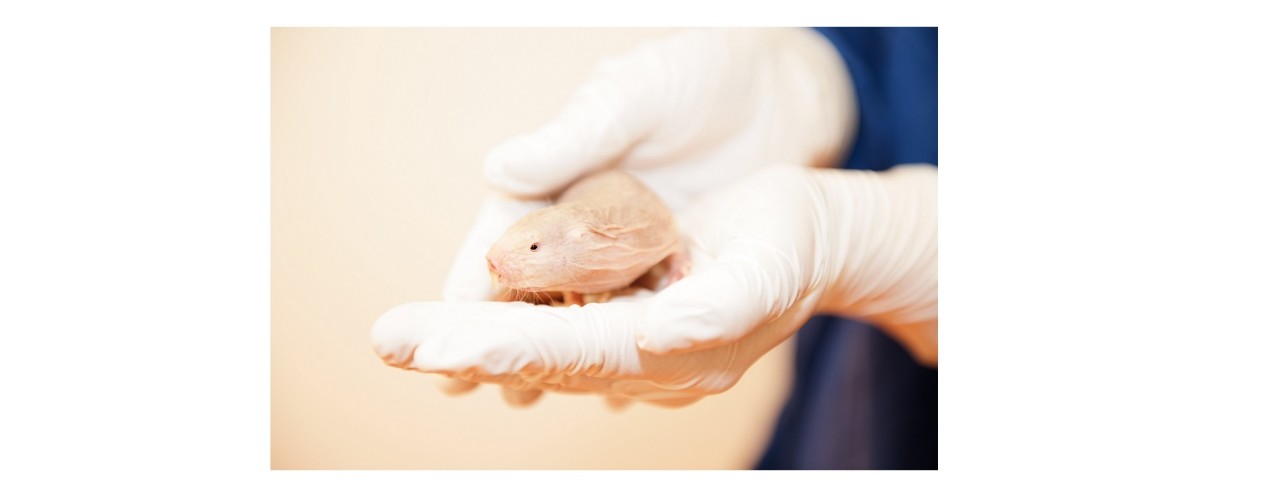Big new markets for small and robust NFC glass tags
A new, robust NFC glass tag with one of the smallest form factors in the global marketplace offers embedded tagging to a wide range of new industry segments and applications.

June 12, 2019
The naked mole-rat, aka the sand puppy, may not be the cutest or most impressive of mammals, but it captivates scientists with its longevity and its resistance to cancer. To better explore these remarkable creatures, the Fraunhofer Institute for Cell Therapy and Immunology (IZI) in Leipzig, Germany, uses Avery Dennison Smartrac’s Intrace® Syringe implanting system with the smallest glass tag on the market (1.25mm x 8.3 mm) to ensure maximum animal protection.
Fraunhofer is Europe’s largest application-oriented research organization and became world-famous as the primary inventor of the MP3 audio compression standard. The Fraunhofer Institute for Cell Therapy and Immunology (IZI) in Leipzig investigates and develops solutions to specific problems at the interface of medicine, life sciences and engineering. Among others, important research areas for the Fraunhofer IZI are immune-oncology, aging processes and the microbiome. For all these research areas, the naked mole-rat is a very interesting animal. It is known to achieve an age of more than 30 years while comparable mammals generally live for no more than eight years (e.g. the guinea pig). Furthermore, the rodent does not get cancer: its cells cannot even be experimentally transformed into cancer cells. These and other characteristics make this extraordinary animal fascinating for researchers.
“We opted for Avery Dennison Smartrac’s Glass Tag and animal identification system as it provides suitable transponder units for the diminutive naked mole-rats. In combination with Smartrac’s handheld reader we have a solution that is reliable, convenient and easy to handle for us as researchers, and as gentle as possible for the creatures we want to explore and respect at the same time."— Dr. Franziska Lange, Co-Head of the Center for Experimental Medicine at Fraunhofer Institute for Cell Therapy and Immunology
Sensitive laboratory animals, complex environment
Yet, naked mole-rats are not the easiest subjects: the anatomy of their ears excludes the possibility of using the ear tags typically used. Another challenge is the high number of individuals in the living area. While mice live in cages that rarely house more than five individuals, colonies of up to 40 naked-mole rats live together in a maze of glass tubes and cages.

A perfect combination: Glass Tag and Avery Dennison Smartrac's Handheld Reader
To cope with these challenges, and to be able to monitor the individual values of their naked mole-rats, the Fraunhofer Institute for Cell Therapy and Immunology decided to individually tag them subcutaneously and in a considerate manner using Avery Dennison Smartrac's smallest Glass Tag with LF operating frequency. Currently, the researchers house 45 animals in two colonies. In each colony, there is a queen giving birth regularly, two to three times a year, to 5-15 pups. All adult animals and every young animal over six months old are tagged. To read the tags, the Fraunhofer Institute uses the Avery Dennison Smartrac's handheld reader that enables contactless identification inside the maze and without any manual intervention, thereby highly reducing the animal’s stress level.
Reliability and convenient handling
“We opted for Avery Dennison Smartrac’s GLASS TAG and animal identification system as it provides suitable transponder units for the diminutive naked mole-rats. In combination with Avery Dennison Smartrac’s handheld reader we have a solution that is reliable, convenient and easy to handle for us as researchers, and as gentle as possible for the creatures we want to explore and respect at the same time,” said Dr. Franziska Lange, Co-Head of the Center for Experimental Medicine at Fraunhofer Institute for Cell Therapy and Immunology.
Glass Tag for Animal Identification
Avery Dennison Smartrac Glass Tag is a flexible and reliable solution for pet, reptile and fish identification, covering everything from racing pigeons to laboratory animals and livestock. The products are “Made in Germany” and in accordance with international standards, such as ISO 11784/85, FDX-A and FDX-B. The smallest LF glass tag available in the market measures just 1.25mm x 8.3mm and fits a 16G cannula very well (a cannula with an outer diameter of 1.6mm). With its minimal dimensions, Avery Dennison Smartrac’s Intrace® Syringe implant system 1 is very suitable for tagging small animals. For perfect interaction, convenience and reliable reading results, Avery Dennison Smartrac also provides its handheld reader.
A new, robust NFC glass tag with one of the smallest form factors in the global marketplace offers embedded tagging to a wide range of new industry segments and applications.
For animal breeders and livestock owners, RFID-enabled tags provide convenience and reliability – features that Avery Dennison Smartrac is taking to a new level with its innovative Cattle Ear Tag using the RAIN RFID (UHF) standard. Offering superior read range through RFID technology, and outstanding ruggedness through its advanced antenna design, the new tag is set to make its mark in the animal ID market.
Avery Dennison Smartrac’s new Intrace Cannula product is a complete, self-contained microchip transponder implanting system that will make pet ID tagging much easier, more animal-friendly and more efficient – offering significant benefits to pet owners and implant practitioners.